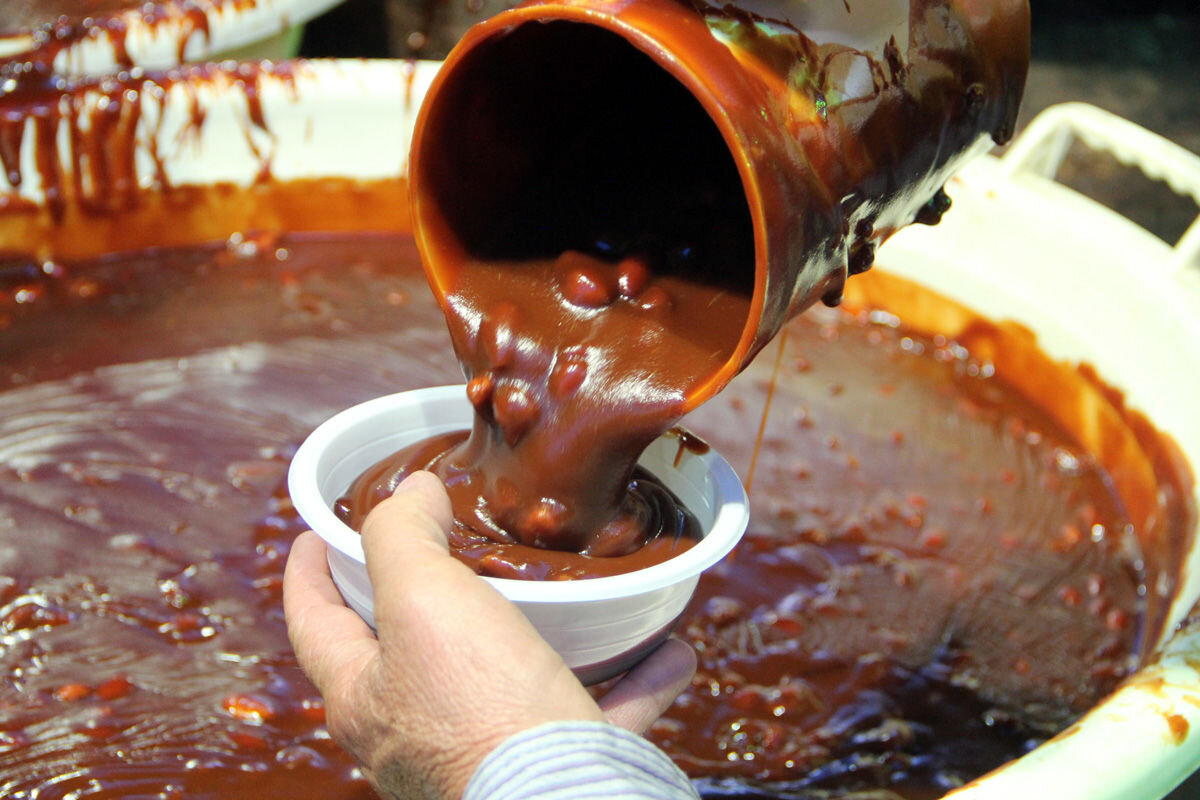Women in Qazvin prepare Samanu to welcome Noruz

TEHRAN – For the celebration of Noruz, which officially starts on March 21, women in the west-central province of Qazvin province cook Samanu during a traditional ritual, ISNA reported on Saturday.
Samanu Pazan (cooking Samanu), as a spiritual heritage, is held annually around the Iranian new year holidays, the report added.
Samanu is one of the items included in Haft-Seen, an arrangement of seven symbolic items traditionally displayed in the Iranian new year, Noruz.
Setting a “Haft-Seen” spread for Noruz is a custom that is being observed by almost all Iranians worldwide.
Seven items on the table start with ‘S’ in Persian language in addition to goldfish, colorful eggs, Quran, candles, and a mirror.
The seven items include sabzeh (wheat, barley, mung bean, or lentil sprouts growing in a dish), samanu (sweet pudding made from wheat germ), senjed (wild olive fruit), seer (garlic), seeb (apple), sumac (a spice) and serkeh (vinegar).
Qazvin was once the capital of the mighty Persian Empire, under Safavids, from 1548 to 98. It is a major tourist destination with a wonderfully restored caravanserai-turned-arts precinct, some quirky museums and a handful of decent eating options. For most travelers, Qazvin is also primarily the staging point for excursions to the famous Castles of the Assassins and trekking in the sensational Alamut Valley.
Also known as the castle of the Assassins, the 12th-century Alamut castle is nestled on top of a peak. It was once a shelter for the followers of Hasan-e Sabbah (1070–1124) who was a spiritual leader of an Islamic sect. In the early 1930s, British-Italian explorer and travel writer Freya Stark described her exploration of the place in her book “The Valleys of the Assassins.”
Qazvin is also home to one of the biggest roofed caravanserais in the country, Sa’d-al Saltaneh caravanserai. Dating back to the Qajar era, it’s a place for discovering tens of Hojreh shops, cafes, yards, and a stunning mosque. It’s a place for visitors who want to experience the culture, cuisine, and hospitality of Iran.
ABU/AM
Leave a Comment